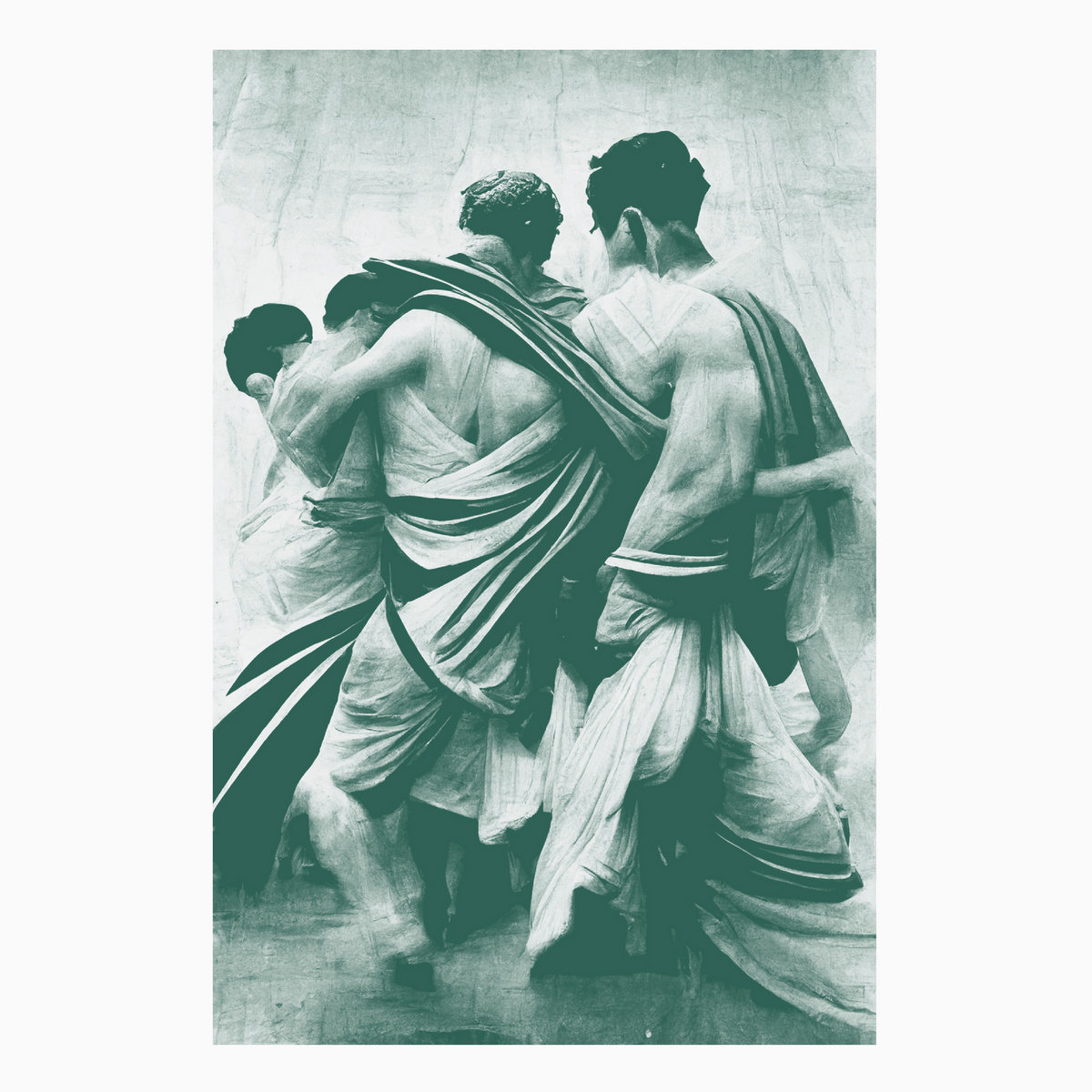Am 7. Juli erscheint mit “The Voice of Theseus” eine neue CD des interdisziplinär arbeitenden Sound- und Medienkünstlers Yann Novak. Eine der wesentlichen Neuerungen des auf unserren Seiten bereits im Rahmen einer Drone-Compilation vorgestellten Musikers ist die im Titel bereits implizierte Bedeutung der menschlichen Stimme als Ausgangspunkt und wesentliches Ausdrucksmedium der Kompositionen, die auf “The Voice of Theseus” durch die Vokalbeiträge von Gabriel Brenner und Dorian Wood vertreten ist. Der mythische Stoff des griechischen Helden Theseus, welcher der Sage nach Ariadne aus dem Labyrinth des kretischen Königs Minos befreite und durch den Sieg über den menschenfressenden Minotaurus die Athener von einer länger andauernden Bedrohung erlöst hatte, und mehr noch der anschließende Kult seiner Verehrung wird hier zum Ausgangspunkt über eine grundsätzliche und stark persönlich eingefärbete Auseinandersetzung mit Aspekten der Sinneswahrnehmung als hrmeneutisches Medium. “Starting at voice as a point of departure, The Voice of Theseus traces sensation and sense making as a primary means to understanding the reality we find ourselves within, a reality that is fraught by, and forged by, our own physiological and psychological ways of being”, heißt es beim Label Room40. Das Album ist auch als Download erhältlich.
“In Greek mythology, the legend of Theseus describes how the king-founder of ancient Athens rescues the children of his city from King Minos’ minotaur on the island of Crete. In commemoration, Athenians began a pilgrimage to honor his victory, taking the ship of Theseus and sailing it from Athens to Delos. It was with this tradition that a philosophical paradox about the historic ship was raised: As the ship was repaired, piece by piece, until it was no longer composed of any original parts, at what point could the ship no longer be considered the same entity? In recent years, I’ve become interested in exploring the perceptual differences I experience. While some of these differences—partial color blindness and dyslexia—have been with me my entire life, tinnitus caused by hearing damage is a relatively new change to how I experience the world. It is these sensory challenges which have shaped my artistic practice by creating what I call a perceptual insecurity—an uncertainty of how accurately I discern the world around me. The Voice of Theseus is my attempt to explore the obstacles I face in processing external sensory information. If I have trouble perceiving reds and greens, if I have trouble hearing certain frequencies, if I don’t interpret written language in a standard way, how closely can I experience reality in the way that others experience it? The album asks the listener to question how their unique means of perception and interpretation might differ from that of others. For The Voice of Theseus, I asked two of my favorite vocalists to assist with this experiment. Both Dorian Wood and G.Brenner recorded vocals for me to manipulate throughout the album. If their original audio is Theseus’s ship, the changes I make to their voices are like the Athenians replacing each of the original vessel’s pieces. And so, how far can these vocals be pushed while still remaining attached to the vocalists’ identities? Where lies the separation between the source materials and the objects they’re used to create? The myth of Theseus’ ship allowed me to tease at the nuances of how reality can be observed, interpreted, and altered in an indeterminate number of ways; it can be dismantled and rebuilt, many times over. And yet, because of my internal circumstances, a perceptual insecurity remains. As flexible as the true nature of an object or moment may be, inaccuracy looms. There’s no real way to know how great the disparity is between my observational experiences and another’s, and no clear limit of how many pieces of our shared reality can be altered—before it stops being just that”. (Yann Novak)
